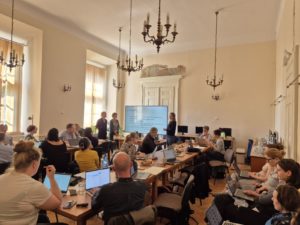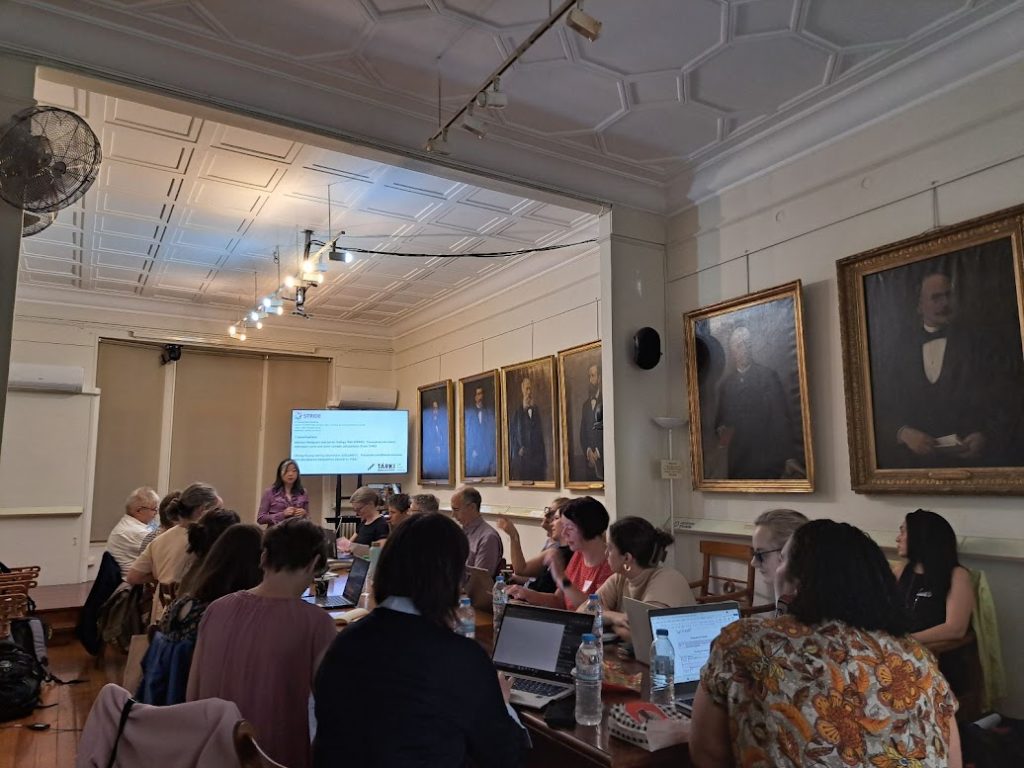On 17 June, the Lifelong Learning Platform organised its 4th edition of the Lifelong Learning Lab; an event where the Education and Training stakeholders working at EU level meet with national, regional and local level peers. The event took place in Brussels under the auspices of the Belgian Presidency of the European Union.
 The event kicked-off with a stimulating presentation and follow up discussion with Dirk Van Damme, an international education policy expert from Flanders who discussed the challenges for European education and lifelong learning from the perspective of educators. Mr. Van Damme and the participants in the event exchanged views on the potential of a crisis of education in Europe due to teacher’s shortages and the policy directions that should be taken to avoid a crisis situation and ensure equity and inclusion in our education systems. Some of the policy directions included: revaluing the teaching profession, evidence-informed policy and practice as part of a complex knowledge system in education, defining lifelong learning as the guiding principle for education policy and strengthening societal responsibility for education through stakeholder engagement.
The event kicked-off with a stimulating presentation and follow up discussion with Dirk Van Damme, an international education policy expert from Flanders who discussed the challenges for European education and lifelong learning from the perspective of educators. Mr. Van Damme and the participants in the event exchanged views on the potential of a crisis of education in Europe due to teacher’s shortages and the policy directions that should be taken to avoid a crisis situation and ensure equity and inclusion in our education systems. Some of the policy directions included: revaluing the teaching profession, evidence-informed policy and practice as part of a complex knowledge system in education, defining lifelong learning as the guiding principle for education policy and strengthening societal responsibility for education through stakeholder engagement.
The LLLab provided opportunities for policy makers and civil society organisations to exchange views. The first moment focused at the EU level with representatives of the European Commission (DG EAC), the Belgian presidency of the EU and the Steering Committee of LLLP discussing lifelong learning post-EU elections and for an European Education Area post-2025. The second moment zoomed into the Belgian context and speakers from the Flemish and the Walloon regions discussed similarities and synergies in the different languages communities of Belgium and what is the role of education stakeholders and civil society in supporting policy development for more equitable and inclusive education systems across regions.
Finally, participants in the LLLab had moments to exchange and learn from each other’s initiatives, first at EU level and then at national and local levels. In the first workshop focused on equal opportunities and access to education from the perspective of European cooperation, LLLP disseminated the upcoming activities of STRIDE and the ways in which the project will provide a new, comprehensive and comparative knowledge-base on effective education reforms, policy initiatives and interventions, that aim at reducing inequalities in education, training and learning outcomes in Europe. A representative of the European Council for Steiner Waldorf Education (ECSWE) shared the experience of her organisation advocating across different member states for guaranteeing the rights of parents and learners to have all available opportunities for learning.
and then at national and local levels. In the first workshop focused on equal opportunities and access to education from the perspective of European cooperation, LLLP disseminated the upcoming activities of STRIDE and the ways in which the project will provide a new, comprehensive and comparative knowledge-base on effective education reforms, policy initiatives and interventions, that aim at reducing inequalities in education, training and learning outcomes in Europe. A representative of the European Council for Steiner Waldorf Education (ECSWE) shared the experience of her organisation advocating across different member states for guaranteeing the rights of parents and learners to have all available opportunities for learning.
 The second workshop focused on the Belgian context and counted on representatives from the adult learning sector sharing their initiatives around inclusion in education. A representative of Lire et Écrire (French speaking) shared their work and the difficulties they encountered providing learning opportunities for adults. Many training courses leading to qualifications perform a selection of candidates on the basis of their basic skills leading to excluding people who lack them. Whilst these learners express their need and wish to develop professional skills, they are excluded from the training. Lire et Ecrire takes all of this into consideration to develop training programmes more attuned to their needs. A second example was shared by a representative of CVO Brussel (Flemish speaking) who provide learning opportunities to adults (including learners with disabilities) and aim to develop programmes that make adult education a bridge-builder between education, welfare, and the labour market for all learners. This means in some cases developing courses that are ‘exclusive’ to some learners, but with a goal of later inclusion for them in employment or full training in the CVO.
The second workshop focused on the Belgian context and counted on representatives from the adult learning sector sharing their initiatives around inclusion in education. A representative of Lire et Écrire (French speaking) shared their work and the difficulties they encountered providing learning opportunities for adults. Many training courses leading to qualifications perform a selection of candidates on the basis of their basic skills leading to excluding people who lack them. Whilst these learners express their need and wish to develop professional skills, they are excluded from the training. Lire et Ecrire takes all of this into consideration to develop training programmes more attuned to their needs. A second example was shared by a representative of CVO Brussel (Flemish speaking) who provide learning opportunities to adults (including learners with disabilities) and aim to develop programmes that make adult education a bridge-builder between education, welfare, and the labour market for all learners. This means in some cases developing courses that are ‘exclusive’ to some learners, but with a goal of later inclusion for them in employment or full training in the CVO.














